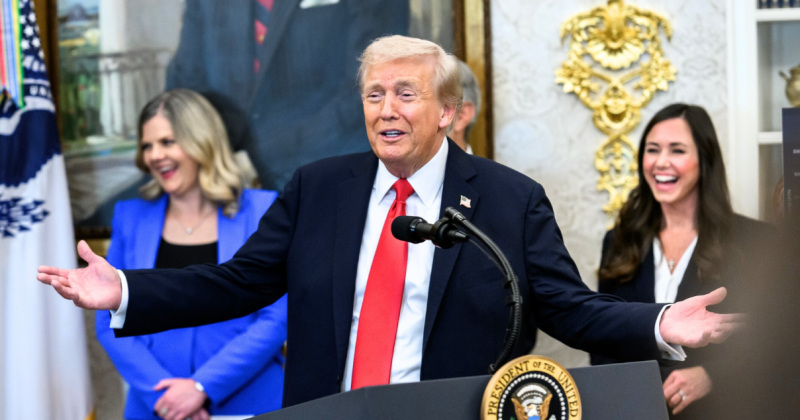The bipartisan consensus in Washington remains crystal clear: China represents America’s most significant geopolitical threat.
While Democrats and Republicans disagree on nearly everything else, national security experts across the political spectrum agree that the Chinese Communist Party poses unprecedented challenges to American interests.
The central question facing policymakers is how to maintain competition without sparking conflict while protecting American workers and consumers from Beijing’s arbitrary trade practices.
The announcement of a planned meeting between President Donald Trump and Chinese President Xi Jinping was quickly overshadowed by Chinese threats to restrict American access to rare earth minerals.
The Trump administration responded decisively, threatening an additional 100 percent tariff on Chinese imports.
The timing of China’s provocative move puzzled many Americans.
Xi Jinping has controlled China for more than a decade with no indication of relinquishing power, while Trump is approaching the end of his presidency. The threat came despite both leaders agreeing to diplomatic engagement.
China’s strategy has historically relied on outlasting American administrations. Beijing operates under the assumption that the United States lacks the patience required for prolonged economic conflicts.
Chinese leadership believes Americans will eventually relent under sustained pressure. However, Fox News’ Trey Gowdy argues that this calculation may prove miscalculated.
He says the current administration has demonstrated unprecedented speed in resolving international conflicts, noting that the historic Middle East peace agreement stands as evidence of this approach’s effectiveness.
The administration has deployed tariffs strategically to increase federal revenue, balance international trade relationships and strengthen domestic manufacturing capabilities.
Less than one year into the term, significant progress has been achieved on multiple fronts.
The administration has addressed threats emanating from Venezuela, restructured diplomatic relations with Colombia, facilitated dialogue between Israel and moderate Arab nations, conducted military operations against Iranian nuclear facilities and secured the southern border.
These accomplishments have unfolded within months rather than years, Gowdy emphasized.
Two major challenges remain unresolved: the conflict in Eastern Europe and comprehensive trade negotiations with China.
These issues are interconnected, Gowdy pens, as China has provided both military and economic support to Russia during its aggression against Ukraine, undermining American efforts to isolate Moscow.
Negotiating with China presents unique challenges because the Chinese Communist Party faces no constitutional term limits comparable to America’s 22nd Amendment.
Beijing’s leadership structure allows indefinite tenure, enabling multi-generational strategic planning.
American negotiators must account for this reality while maintaining positions of strength.
Recent intelligence reports suggest Xi’s authority may be diminishing amid internal party purges and potential dissent. However, historical precedent indicates such assessments often prove exaggerated.
Gowdy further notes that even if Xi were removed from power, his successor would likely continue the authoritarian policies defining modern Chinese governance.
China views America’s democratic electoral cycles and limited presidential terms as strategic advantages.
The key to successful negotiations lies in demonstrating that Trump’s direct approach and impatience with Chinese delays represents a threat to Beijing’s interests rather than a negotiating weakness.
The administration’s pressure campaign extends beyond tariffs into the technological arena, where future global power competitions will be decided.
China’s dominance in communications infrastructure and artificial intelligence poses serious national security concerns.
Gowdy adds that the administration has moved aggressively to counter Beijing’s control over critical technological systems.

